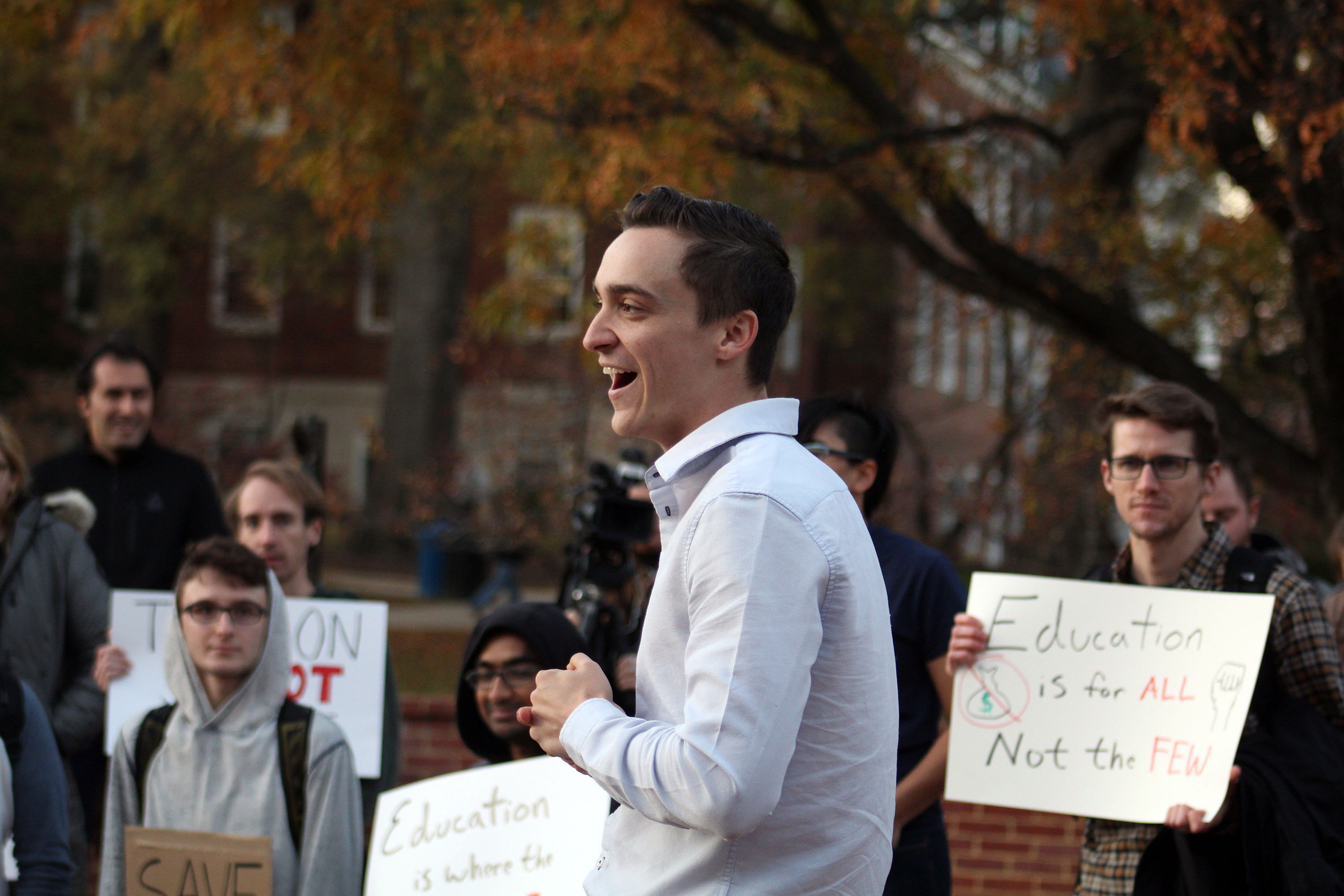By Christine Condon and Angela Roberts
Staff writers
A University System of Maryland Student Council survey found there is “much room for improvement” regarding shared governance between student groups and university administration at the University of Maryland.
The survey, which was conducted among undergraduate and graduate student leaders across 13 system institutions, evaluated the participation of student leaders in decisions made at the campus level.
The survey found significant variance across system schools. Five student leaders of the 13 “agreed” or “strongly agreed” that shared governance was “alive and healthy” at their schools, while four either “disagreed” or “strongly disagreed.”
At this university, the survey highlighted the implementation of an international student fee as an example of “failed” shared governance. The fee, which was implemented fall 2017, imposes a cost of $125 on full-time, newly enrolled international students and $62.50 on part-time students per semester for academic support and transition assistance, according to the International Students and Scholars Services office’s website.
[Read more: UMD GSG is pushing to review $125 international student fee before its rollout in the fall]
The five-step approval process for mandatory fees includes recommendations from the Committee for the Review of Student Fees, which is composed of both university officials and students. The group was not consulted regarding the international student fee, then-Graduate Student Government President Stephanie Cork wrote in a message.
That “has caused significant distrust” between student leaders and this university’s administration, the shared governance report read.
“Student leaders are then left with the perception that their input is tokenized or disregarded, yet shared governance is still used as a marketing tool,” it read. “When brought to the table, student concerns, especially graduate student concerns, are not taken seriously.”
University President Wallace Loh denied that the international student fee situation was indicative of issues with shared governance.
“It’s a process of shared governance, it is not shared management. It is not joint decision-making,” Loh said. “The Board of Regents approved [the international student fee], they considered this idea of whether or not there was shared governance, [students] had their input, they expressed their unhappiness with this procedure, we listened to them, but the Board of Regents approved it.”
[Read more: A USM proposal could change how some student fees are approved]
Caden Fabbi, a public policy graduate student and president of the system student council, said the survey was the first of its kind and was borne out of “continuous and regular concerns related to shared governance” discussed among the group.
This university’s process of shared governance includes collaboration between the GSG, Student Government Association, Residence Hall Association and University Senate, which includes faculty and staff members.
The system student council opted to complete the survey in advance of the system’s annual review of university presidents, Fabbi said, so that the information would be available for those reviews.
“On some campuses, shared governance, it works well. On other campuses, there are significant and serious issues that must be addressed — like College Park,” Fabbi said.
AJ Pruitt, the outgoing SGA president and a member of the system student council, said he feels that his voice is heard by the administration, but he wants to ensure that remains true for others in the future.
“There are definitely people in this administration at Maryland that I am always comfortable to call and will usually get my call answered,” he said, adding that he would like to see more formalized mechanisms to “make sure that happens” in case future SGA administrations do not have the same “relationship and rapport with those people.”
GSG President Michael Goodman said while this university “does a decent job” at providing opportunities for student governance, “the problem lies with when we bring up real, valid concerns … or real frustrations, and those are met with, ‘Oh, we’ll look into it.'”
Roozbeh Bakhshi, a mechanical engineering representative in GSG, said the group’s current relationship with the graduate school is the best it has been for four or five years, adding that administrators have “finally started to listen to us.”
He cited the ongoing development of policy for graduate students to file complaints about disrespectful and abusive behavior by advisers as an example of the shared governance system working effectively.
Bakhshi said after the graduate school drafted a proposal for the senate requiring each school and college to create an internal grievance policy, they were responsive to feedback from a GSG committee created to review the legislation. The Graduate Council will vote on the proposal in May.
“I’d take it as a piece of shared governance,” Bakhshi said. “They respected our opinion and they listened to us.”
Still, he said, there is a power imbalance between student groups and the administration.
“We are not the powerful ones,” he said. “The powerful ones are the provost and the president. If they don’t show any interest or listen to us, then there’s nothing we can do about it. … They are still not mandated to listen to us.”



